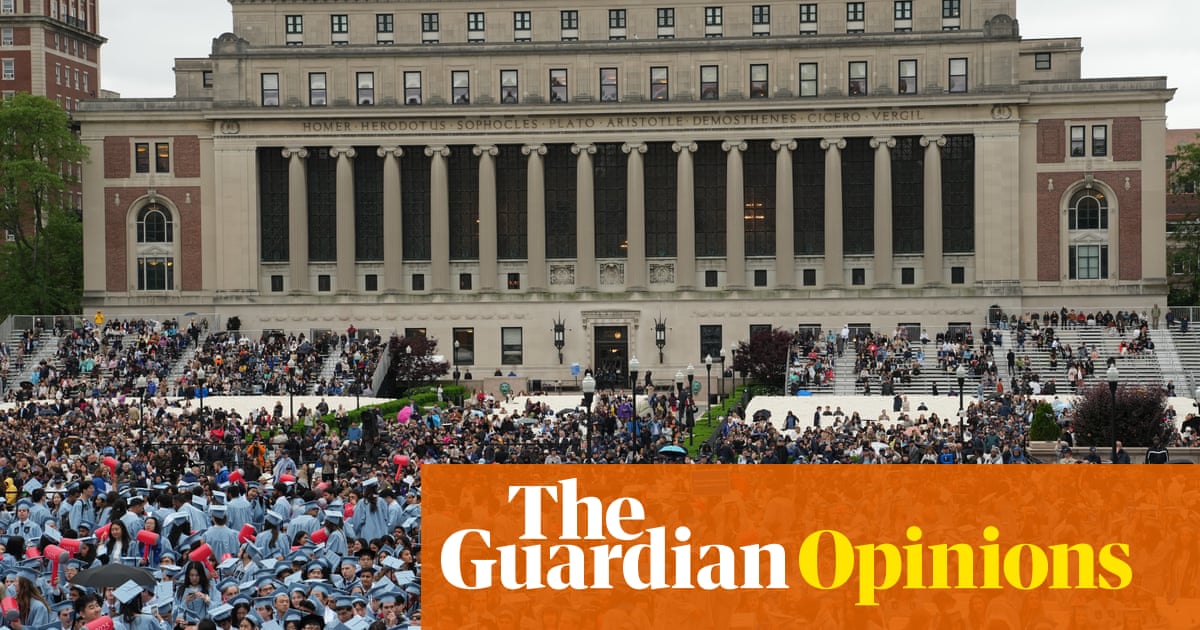It is now time for scientists to withstand Trump's repressive agenda | Daniel Malinsky

THere is a stereotype that natural political activists in the university world are the professors of the humanities: literary scholars, social theorists and criticism of culture are those who tell the truth to power and fight against oppression.
However, scientists should also get up and organize against attacks by the Trump administration – not only attacks against scientific research and integrity, but also attacks on immigrants, political discourse and democracy. Scientists cannot consider themselves above the fray but rather in coalition with other workers resisting authoritarianism.
History is full of examples of scientists who have taken great risks to resist authoritarianism. Dutch neurologist GGJ Rademaker has reorganized his laboratory in a resistance base (with a press to print, radio equipment and hidden weapons) against fascist forces in the Netherlands occupied by the Nazis. Some German scientists, including psychoanalyst John Rittmeister and the biochemist Heinrich Wieland, opposed the Nazi regime by hiding the Jews and distributing a prohibited anti-fascist literature. The brave German scientists even helped the Allied forces during the Second World War.
At the meeting of the American Association for Cancer Research, CEO of this research company, Margaret Foti, encouraged Cancer scientists participate in events and meetings with elected representatives. Professors from all corners of the campus are already fighting against the financing cups, attempts to deport our international students and the usurpations of democratic governance. In Columbia, where I work, the teachers organized themselves to urge our university management to provide real protections to students in danger of deportation and to continue the Trump administration, among others requirements. Unlike stereotype, a large part of the organizational work is carried out by scientific teachers – psychiatrists, epidemiologists, astronomers, mathematicians, economists, statisticians, oceanographers – hand in hand with our colleagues in the human sciences.
Despite the idea that scientists are and should be careful or apolitical, science teachers are well suited to political activism. The work of the political organization is not so different from the management work of a research laboratory: skills to divide tasks, manage people in sensitivity and provident, and by creating clear and convincing accounts to communicate achievements (for example, the peers examors reading our manuscripts) are all clearly transferable to activism. All science teachers were once science students, doing the typically monotonous work of scientific work, spending hours tinkering carefully in the laboratory, debugging the IT code or meticulously collecting information on the human or natural world. Often, political activity involves simple but long tasks such as printing leaflets or making telephone calls to representatives. Sometimes there is a simple logistics that requires management in the organization of a protest march. A certain activism is to develop strategies in the coalitions to distribute the necessary resources or create support institutions. None of this is as difficult as “rocket science” and it is actually remarkably similar to the most banal parts of everyday science.
Many recent measures taken by the Trump administration are very obviously on the expertise of scientists: attacks on federal funding for research, the decline in the protections of our decades of our environment and our human health, the excision of research specifically linked to climate change or the development of vaccines. Robert F Kennedy Jr recently promised to devote scientific resources to the study of the alleged relationship between autism and vaccination – a question which was addressed by dozens of studies and on which the scientist consensus The opposite is clear – and threw the weight of the government behind stigmatizing and dangerous initiatives linked to autism, disputed by experts and defenders. Donald Trump has also taken measures to sabotage the Congress with compulsory research on the climate crisis by rejecting the authors of experts of the assessment of the national climate. Opposite These movements and organizer against them As scientists is obvious. However, scientists must also fight teeth and nails against the secret and apparently baseless imprisonment of immigrants, the usurpation of democratic controls and counterweights, and the reorganization of increasingly hateful society. These things all affect us, whatever our work descriptions. He should go without saying that the scientific investigation cannot prosper in a society dominated by fear, censorship and hatred.
Scientists are attracted to the work we do for many reasons, but I would venture that for most of us, there is an underlying objective of advancing humanity – whether by finding remedies to diseases, new technologies or more abstractly by pushing the limits of human knowledge so that future generations are better. All this is at risk if we remain “neutral” or “apolitical” at the wrong moment in history. Although there is a plausible argument to be mistaken on the side of “apolitical” in normal times, to ensure confidence and protect itself against the undue politicization of scientific work, the argument extends and decomposes given our current political environment and our apparent shift towards fascism. Our scientific research itself must remain safe from prejudice and aim where the truth can lead, but the work of which we are seized is not only scientific research. We must also work to preserve the living conditions that make science and society prosper. In these times, this means that scientists have the duty to dissent.
After promoting the newsletter





